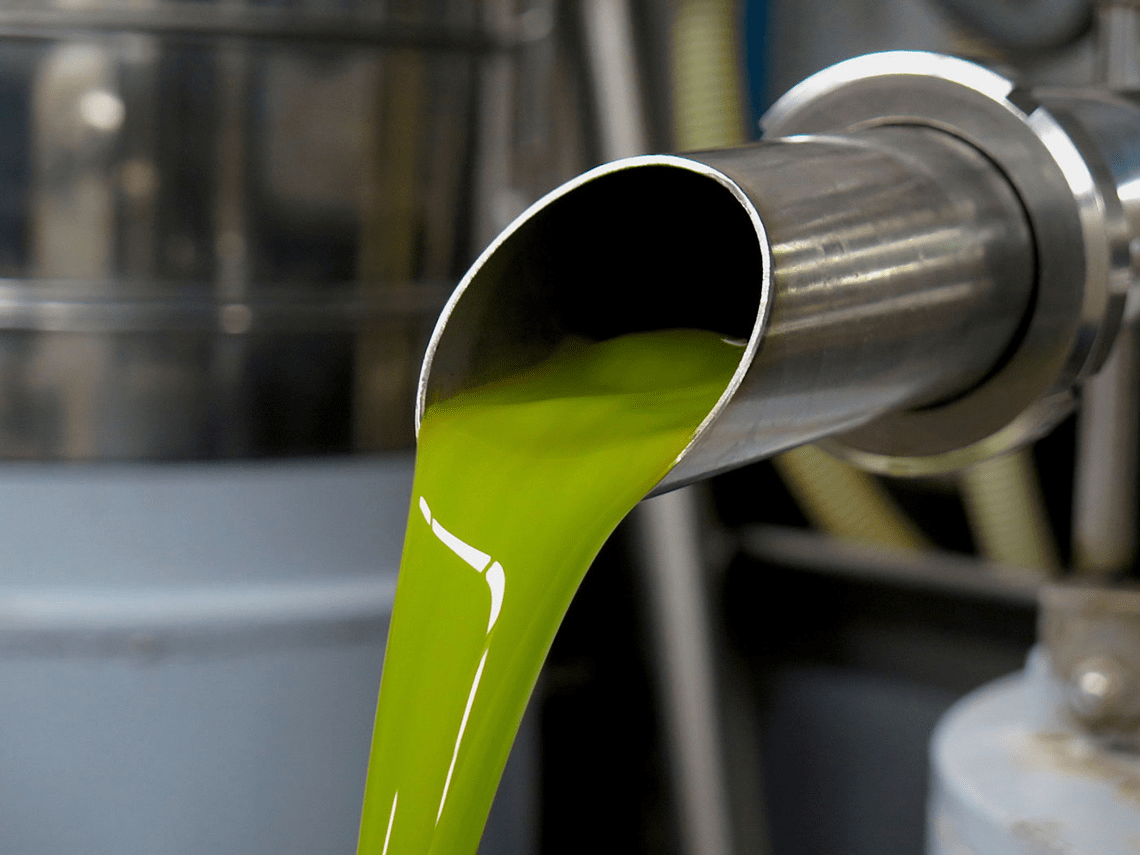Filtered and unfiltered oil. What are the differences between them and how does filtering affect the quality of olive oil?
Unfiltered oil is enticing for its intense colour, is cloudy and crude and is due to tiny olive particles that have been left in suspension. It might be considered superior in quality to filtered oil, but this is not always the case. So we’ll find out why.
Since ancient times, in the process of extracting the juice from the olive fruit, a solid pulp and a liquid part of vegetable liquid and oil have always remained as a residue. The separation of oil and vegetable liquid until a century ago was done by natural decantation since these two elements are not mixed together. With the advancement of technology, the separation of oil and water is done with the help of centrifugal method. Even with this process, the oil has a more or less cloudy appearance due to the presence of moisture droplets together with micro-particles of olive pulp.
The filtering is done in order to remove even the smallest amount of oil from the microparticles, giving the consumer who tries it the feeling of a traditional raw product, while at the same time we see that they form a sediment at the bottom of the bottle, ultimately shortening the shelf life of the oil. Ultimately, filtering is one of the most important steps that affect the shelf life of the product up to the moment of consumption.
Why oil filtration is important
The proper preservation of extra virgin olive oil depends on several factors: exposure of the product to light and oxygen is one of the main causes of deterioration in the quality of the oil. The combination of light and oxygen initiates chain reactions that in a short time can degrade the quality and inhibit the activity of vitamin E and polyphenols until the oil becomes tango.
However, there is another threat to the quality of oil: the presence of water and enzymes present in the cell sap which catalyse reactions that have an effect on both the chemical characteristics (for example, increasing the acidity of the oil) and the organoleptic characteristics of this health elixir. Intuitively speaking (but also scientifically proven), it is certain that the removal of these substances through filtration leads the oil to acquire greater stability and better resistance to its own ageing.
How filtering is done
Leaving aside methods that are now obsolete, today the filtering of oils, compared with wine and fruit juices, is carried out through filters containing diatomaceous earths and cellulose earths, both of which are inert. These are deposited inside a filter until they form a filtration layer. As the oil passes through this layer, it retains both solid particles and water droplets, making the oil clear and shiny. Filtering does not change the aroma and taste of the oil, but helps to preserve all its characteristics and nutritional value over time.
Filtered or unfiltered oil
In recent years, the sale of unfiltered oils has become widespread in supermarkets. As a lure and for presentation purposes, information such as unfiltered oil, crude oil, traditional oil, 100% natural oil is written on the label, giving the consumer the impression of a product that has come directly from the mill. Not infrequently, a better quality is attributed to these oils both in terms of sensory and nutritional qualities.
When choosing an extra virgin olive oil, this clarification must be taken into account: just as in the case of wines, where there are thousands of nuances in the bouquet that differentiate one wine from another, the content of antioxidants and polyphenols, the intensity and subtlety of the nutritional characteristics can vary from product to product. A filtered oil may have much higher characteristics than an unfiltered or unfiltered oil, since quality depends on the raw material and not on whether or not an oil is filtered. All of this is subject to the clarification that the characteristics of a filtered oil make it capable of withstanding much more time than an unfiltered oil.
Source : lifegate.it
Translation: olivenews.gr





